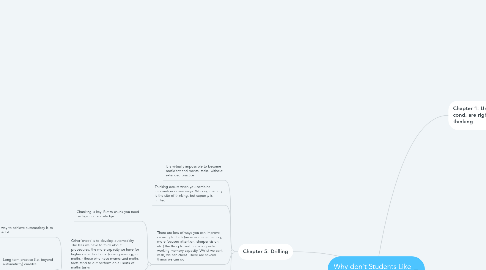
1. Chapter 5: Drilling
1.1. It is virtually impossible to become proficient and mental tasks, without extended practice
1.2. Thinking occurs when you combine information in new ways. Working memory is the site of thinking, but capacity is limited
1.3. There are lots of ways you can improve capacity to think (more accurate memory, more focused attention, sharper vision etc.) the thing to wish for is a greater working memory capacity. Whilst we cant wish, we can cheat. There are several things we can do
1.3.1. Chunking is key. But to chunk you need background knowledge
1.3.2. Other 'cheat' is to develop automaticity. The less we have to think about procedures, the more capacity we have for higher order functions. (driving analogy, or maths - those who have memorized maths facts tend to out perform on all sorts of maths tasks
1.3.2.1. The only way to achieve automaticity is to practice. A lot.
1.3.2.2. Long term practice (i.e. beyond automaticity) enables
1.3.2.2.1. Further learning, by more things becoming automatic
1.3.2.2.2. Makes memories longer lasting (how much can I remember about my thesis)
1.3.2.2.3. Increases chances of learning transferring to new situations
1.4. Classroom implications
1.4.1. Drilling is important: practice things which need to be automatic grapheme- phonics/ number bonds etc
1.4.2. Space out practice so that it is less boring. Practice over time also leads to long lasting change
1.4.3. Automaticty takes a lot of practice: little and often is key
2. Chapter 1: Unless Cognitive cond. are right, we will avoid thinking
2.1. Thinking is slow and unreliable
2.2. Where possible we rely on memory. Most problems we face, we have done before
2.3. That said, we are curious, when cog conditions are right.
2.3.1. We need to be interested in the content
2.3.2. The difficulty of the problem is also important; not too hard, not too easy
2.3.3. Pleasure derives from solving problems
2.4. Implications for schools
2.4.1. Lessons must ensure there are problems to be solved
2.4.2. To be able to solve problems, students need background knowledge (see Chapter two)
2.4.3. Think of schoolwork as answers we want students to know. Teachers should spend time luring pupils in to an interesting context and plan interesting questions to solve
2.4.4. Consider when to puzzle students. Often teachers start a lesson with something unexpected to draw students in (e.g. an experiment), but this might be more powerful after students have some knowledge on it
3. Chapter 2: The importance of background knowledge
3.1. Factual knowledge must precede skill
3.2. Successful thinking relies upon: Info from the environment/ Facts in long term memory (LTM)/ Procedural knowledge in LTM/ Space in Working Memory (WM). If any are inadequate, then it is likely that thinking will fail
3.3. There is face validity in the concept of teaching higher order skills. e.g. if we want students to think like scientists, we need to teach them how to develop hypothesis and interpret data. But this is not possible without background knowledge (possible criticism of Guy Claxton's BLP)
3.4. Background knowledge is essential for reading comprehension:
3.4.1. Being able to define words
3.4.2. Filling in the gaps left by writers, who assume a level of understanding
3.4.3. It allows chunking and frees up WM capacity (Baseball reading comp exp)
3.5. Background knowledge is necessary to become a good thinker
3.5.1. Primarily through chunking and automaticity
3.6. Background knowledge improves your memory
3.6.1. It is easier to remember something if you already know a little about the subject (e.g. two paragraphs, one on a topic you know, one not. When quizzed a week later, your background knowledge prompts your recall
3.6.1.1. "It was something about cakes.... cakes are baked, frosted and used a birthday parties. Cakes are made from butter.... that is it, it was about cakes you can make from oil"
3.6.1.2. This has huge implications. If student A comes to school knowing 10,000 facts, and Student B knows 9000, they will both remember a percentage of what they already know. Say they remember 10% of what they already know, the gap increases from 1000, 1043 within 10m
3.7. Implications for schools
3.7.1. Do what you can to encourage kids to read. Countless studies show the value of reading to improve background knowledge over things like watching TV/ playing video games
3.7.2. Be sure knowledge is in place before you ask students to analyse etc
3.7.3. Highlight the importance of the home environment
3.7.3.1. Vocab used by parents
3.7.3.2. Ask children Q's and listen to their answers
3.7.3.3. Enrichment activities
3.7.3.4. Are books readily available
3.7.3.5. Model good practice by reading infront of your children
3.7.3.6. Support school by discussing key topics with children
